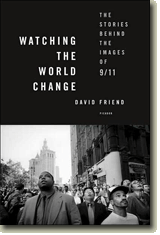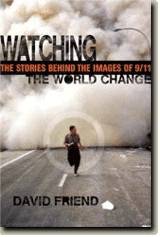« Previous · Home · Next »
January 7, 2007
ABOUT THAT BLURB ON THE BACK JACKET
This is Robert Stone’s week.
On Tuesday, Stone will publish his coming-of-age memoir, Prime Green, recollections and reevaluations of his 1960s post-Beat, proto-literary days and nights, many of them spent in the pulsing bosom of Ken Kesey's Merry Pranksters. (The phrase “prime green” describes the iridescent hue of the dawn’s first rays, sometimes glimpsed by Stone after a night of hallucinogenic ingestion in the company of Kesey’s clan.)

In today’s New York Times Book Review, Walter Kirn calls the book a wise, clear-eyed “bedtime story [for] all you dreamy children of Aquarius…. [Stone is] in the here and now on every page… pressur[ing] his prose with retrospective pessimism.”
Many readers, myself included, consider Stone to be America’s preeminent narrative novelist, the author of taut, Conradian tales of modern angst that trace the bedeviled falls from grace of an assortment of faith-addled vagabonds, dreamers, and lost souls: Dog Soldiers and A Flag for Sunrise (his best book), Children of Light and Damascus Gate, Outerbridge Reach and Bay of Souls. (His best short story: “Under the Pitons,” is in the collection Bear and His Daughter.)
Robert Stone was a mentor of mine at Amherst College. He was the marquee-name, larger-than-life writing professor with the bearded mystic's bearing, who would chain-smoke Carltons and exude gravitas. While staring sidelong into the middle distance, and speaking both softly and forcefully, he would critique his students’ work, always encouraging them to value story line over style.
I remember one particularly fume-fueled night in 1973 when, having been accepted at Amherst for the fall term, I visited the campus as a high school senior and stayed with the friend of a friend at the Psi U frat house. I mentioned that I planned on taking Stone’s writing course. As if on cue, an upper classman I’d just met quoted aloud a blurb from the back of Stone’s first novel, A Hall of Mirrors. The squib, written by Wallace Stegner, declared the book to be “one of the two best first novels I have ever read, the other being Bill Styron’s Lie Down in Darkness…. Stone writes like a bird, like an angel, like a circus barker, like a con man, like someone so high on pot that he is scraping his shoes on the stars.”
It was then and there that I began to understand the value of a good book blurb.
So it was with Stegner’s quote in mind, and a degree of trepidation, that 33 years later I decided that my old professor would be the first person I’d approach to provide a blurb for Watching the World Change. I had stayed in touch with him over the years: he’d had been extremely supportive when I’d first moved to New York to be a “starving writer,” praising my work to agent Maxine Grofsky and offering advice. In recent years, we discussed stories for Vanity Fair, mutual friends, the state of the Middle East and our respective lives.
A year ago, Robert Stone was the first person to whom I sent my ready-to-be-copy-edited draft--a thick, hastily photocopied stack of messy manuscript pages (many of them scarred with hash marks, scrawls, revisions and corrections, single-spaced paragraphs Scotch-taped into the margins). And within two or three weeks, he mailed me what would be the book’s first critique, which now graces the book's back jacket. It remains the most thoroughly effusive and personally inspiring reaction that I’ve received:
"To read Watching the World Change is an overwhelming experience. Beautifully written and observed, as a tribute to the dead, it embodies the Buddhist wisdom about change, life, and the world more than anything written after the events of that day.
“A reader can only bear witness to the tenderness and wisdom at the core of this book, which distinguish it throughout. David Friend's passionate sympathy engages the reader without relenting. Just about all the observations that might be sought from the events of that day are here: victims, survivors in every sense, responders. Loss, pride, a helix of sorrow and shame along the meridians of the world. Along with its records of grief, Watching the World Change celebrates the courage to go on, which may be the most admirable and irreplaceable of human virtues."
I can’t wait to crack open Prime Green.

Robert Stone, Janis Stone, David Friend at book party for Watching the World Change, October 2006 PHOTO BY PATRICK McMULLAN


